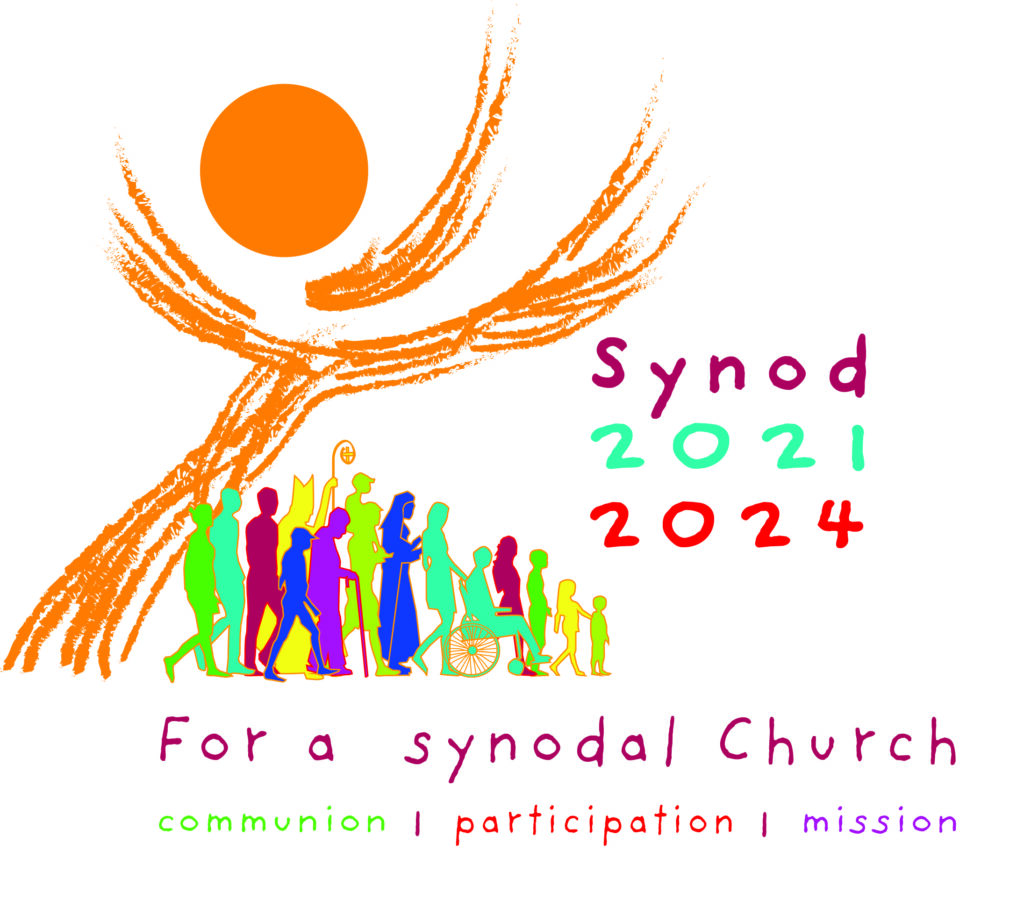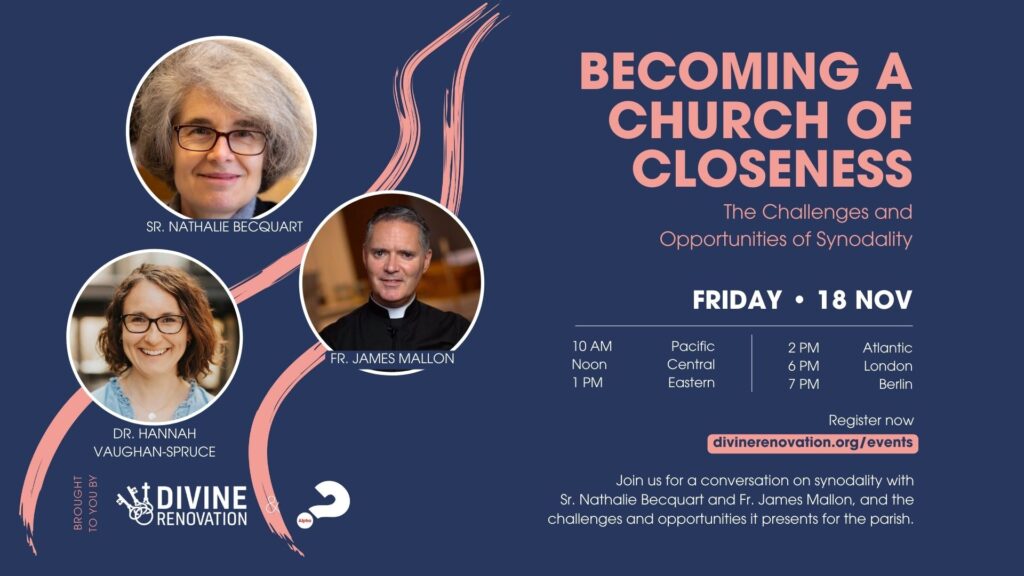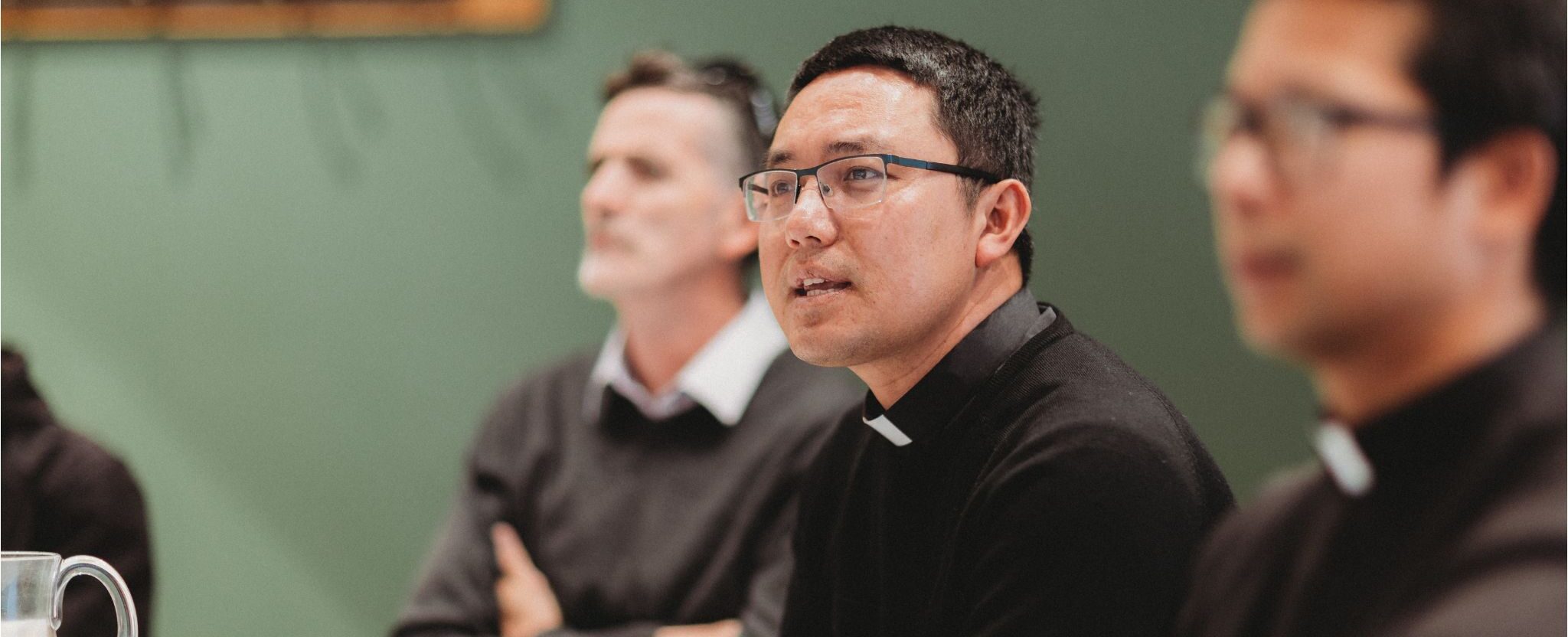
Sister Nathalie Becquart, xmcj, undersecretary of the General Secretariat of the Synod (Courtesy of Sister Nathalie Becquart)
“That they may become completely one, so that the world may know that you have sent me.”
John 17:23 NASVCE
Jacqueline Marie | Nov. 9, 2022
Family roadtrips as a child were an uproarious combination of excitement and conflict. One sibling elbowing the other, the littlest squished silent in the middle, and a continual onslaught of divided opinions on what route should be taken, what radio station turned on, and when it was truly necessary for a bathroom break.
While becoming a synodal Church is far more complex and important than a family roadtrip, it does share the commonality that journeying together is full of challenges.

But as the Preparatory Document, For a Synodal Church: communion-participation-mission, explains, “our ‘journeying together’ is, in fact, what most effectively enacts and manifests the nature of the Church as the pilgrim and missionary People of God.”
The Church is one body. As Pope Francis states: “It is precisely this path of synodality which God expects of the Church of the third millennium” (quoted in Par. 1 of the Preparatory Document).
Sister Nathalie Becquart, XMCJ, undersecretary of the General Secretariat of the Synod expounds, “it’s completely missionary focused we can say.” A synodal Church is in communion, participating together for the mission of the Church. She continues, “I think that resonates with the approach also of Divine Renovation: that you are not alone to do the mission.” She refers to the ministry of a Pastor, who on his own may be able to do some things, but it will be a smaller piece. She states, “If you do it together, if you empower all the baptized to be protagonists, to work together, to serve together, to carry on the mission together, it will be more fruitful.”
"That resonates with the approach also of Divine Renovation: that you are not alone to do the mission.”
Sister Nathalie Becquart XMCJ Tweet
Sister Nathalie comments, “the missionary experience is a path of mutual transformation. It transforms those – we hope – we are reaching out to tell them the Good News, but it also transforms the missionaries, the parishioners who are going to meet the others.”
She references the story of Peter and Cornelius in Acts 10. Cornelius, a centurion in the Roman army is earnestly seeking God – the Holy Spirit is moving his heart towards conversion. An Angel of the Lord appears to him and tells him to send for Simon-Peter in Joppa. At the same moment, the Holy Spirit is moving in Peter, who is perplexed after receiving a vision in prayer: a voice telling him to rise and eat unclean animals – meat that, as a Jew, he would never touch. Immediately after, Cornelius’ messenger arrives and summons him to go to Caesarea. Peter follows and shares the Gospel with Cornelius. Through this, God works a mutual conversion in both of them: Peter is transformed in the knowledge that the Gospel of Jesus is for all people – Gentile and Jew – and Cornelius is transformed through a belief in Christ and is baptized.
Sister Nathalie emphasizes that synodality is not something trite for the Church to pursue. It is “not just because it’s nice to be together, no, it’s because it’s the way to be Church today, to bear fruit, and to reach out, and to preach the Gospel, and to tell the Good News.”
Sister Nathalie describes the path to synodality: “a synodal Church is a listening Church…It is to listen to each other, to listen to the Holy Spirit.”
“The synodal Church is a listening Church and we can say it’s also a learning Church.” Sister Nathalie explains, “it’s to recognize that we need to learn from one another, and Pope Francis is stating that. …Everybody has to learn from one another.” This journey of listening and learning requires “us to be humble and to know that nobody alone has the truth, we are all seeking for the truth.”
Listening, learning, and… discerning. Synodality is also about discernment. “It’s always richer to discern together and not alone.” But Sister Nathalie cautions, “that doesn’t mean that at the end the pastor isn’t the pastor, and he will make the final decision.” She explains decisions are rooted in, “a process of listening, working together… so synodality asks for a new style of leadership, a more collaborative leadership.”
The Synod on Synodality is about “how to be a more faithful Church.” And, she stresses, “it’s not about being another Church, it’s about really being the same Church but also in a new context, in this time of history. We are not going to serve and announce the gospel in the Middle Ages.”
She ends, that it is a style that is rooted in the person of Jesus and is “letting the Word of God resonate with our situation and experiences today.”
Sister Nathalie Becquart, XMCJ will be joining Father James Mallon and Dr. Hannah Vaughan-Spruce on Friday, November 18th in the upcoming Divine Renovation and Alpha event: Becoming a Church of Closeness: The Challenges and Opportunities of Synodality.


